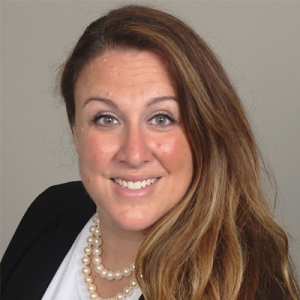Career Technical Education (CTE) equips students with in-demand skills and knowledge, preparing them for successful careers in diverse career pathways. State CTE Directors are tasked with the crucial duty of promoting the integral role of CTE in improving workforce development efforts and subsequently their state economies. CTE is a pathway to a skilled and competitive workforce and below are strategies to effectively advocate for CTE’s potential impact.
 Work-based learning experiences, such as internships, apprenticeships and on-the-job training, bridge the gap between classroom learning and practical application. Partnering with local businesses and community organizations is critical to expanding work-based learning opportunities for CTE learners. Demonstrating the tangible benefits of such experiences, including increased employability and a smoother transition into the workforce, reinforces the value of CTE as an effective workforce development pathway.
Work-based learning experiences, such as internships, apprenticeships and on-the-job training, bridge the gap between classroom learning and practical application. Partnering with local businesses and community organizations is critical to expanding work-based learning opportunities for CTE learners. Demonstrating the tangible benefits of such experiences, including increased employability and a smoother transition into the workforce, reinforces the value of CTE as an effective workforce development pathway.
This can be accomplished through elevating learner voice. Nothing speaks louder than success stories. State Directors can actively showcase the achievements of CTE alumni who have excelled in their careers after completing CTE programs. Featuring these success stories on websites, social media platforms and in local media can inspire current and prospective learners, parents and community members to view CTE as a viable path to achieving their career goals.
To strengthen CTE’s position as a workforce development pathway, an investment in modern infrastructure and technology is critical. Up-to-date equipment and technology not only enhance the learning experience but also demonstrate a commitment to providing learners with the necessary tools to succeed in the workforce. Additionally, leveraging workforce and economic trends to develop career pathways that are relevant to current labor needs creates the symbiosis needed for a properly functioning CTE ecosystem. State Directors can engage in outreach initiatives to build strong partnerships with stakeholders, highlighting CTE’s contributions to economic growth and prosperity. Engaging in conversations with employers and policymakers helps foster a shared vision and commitment to supporting CTE as a critical workforce development strategy.
Promoting CTE as a pathway to improving workforce development efforts is essential to creating a skilled and competitive workforce that meets the demands of a rapidly evolving job market. State Directors have the unique opportunity– and responsibility– to lead this transformative charge. By emphasizing industry-relevant skills, facilitating work-based learning opportunities, building strong partnerships, showcasing success stories and investing in modern infrastructure, CTE can remain at the forefront of workforce development initiatives.
For additional information, resources and tools on promoting CTE as a pathway to improving workforce development, please visit:
- The Learner Voice Toolkit which provides state and local CTE leaders with actionable resources, guidance and tools to ensure CTE learner voices are elevated and heard for the improvement of CTE policies and practices.
- Shifting the Skills Conversation: Employer Attitudes and Outcomes of Career Technical Education which provides tangible data points on employer attitudes toward Career Technical Education (CTE) and the positive return on investment CTE experiences provide for business and economic growth.
- The State Work-Based Learning Toolkit Innovation Tracker Analysis highlights key elements of the tracker and promising practices in six states. The accompanying tracker captures these toolkits in an effort to provide state and local leaders with real-life examples to adapt and implement in their own states and communities.
Brice Thomas, Former Policy Associate


 I could not be more delighted to join the team here at Advance CTE! A self-proclaimed “Career Technical Education (CTE) evangelist,” I’ve spent much of my career designing, implementing and supporting policies and practices that create the conditions for high-quality CTE to flourish, and have had the pleasure to learn from and work alongside the Advance CTE team and members over those years. As a former State CTE Director and Advance CTE member, it is an honor to be able to give back to an organization that has given so much to me and to the field at large.
I could not be more delighted to join the team here at Advance CTE! A self-proclaimed “Career Technical Education (CTE) evangelist,” I’ve spent much of my career designing, implementing and supporting policies and practices that create the conditions for high-quality CTE to flourish, and have had the pleasure to learn from and work alongside the Advance CTE team and members over those years. As a former State CTE Director and Advance CTE member, it is an honor to be able to give back to an organization that has given so much to me and to the field at large. Kevin Imes’ 36-year career in public education covers a diverse range of experiences. From the beginning of his career as a Biology teacher in downtown Phoenix schools to his role in opening a magnet program, an alternative school, a comprehensive high school and a public CTE district from the ground up, Kevin’s expertise in program development lends itself well to his new position as State CTE Director.
Kevin Imes’ 36-year career in public education covers a diverse range of experiences. From the beginning of his career as a Biology teacher in downtown Phoenix schools to his role in opening a magnet program, an alternative school, a comprehensive high school and a public CTE district from the ground up, Kevin’s expertise in program development lends itself well to his new position as State CTE Director. My name is Dan Adams, and I am very excited to lead Advance CTE’s Data & Research team where I’m responsible for Advance CTE’s data quality and initiatives to promote data-driven decision-making among state Career Technical Education (CTE) leaders and within Advance CTE.
My name is Dan Adams, and I am very excited to lead Advance CTE’s Data & Research team where I’m responsible for Advance CTE’s data quality and initiatives to promote data-driven decision-making among state Career Technical Education (CTE) leaders and within Advance CTE. Hi, I’m Layla, and I’m excited to join the Advance CTE team as a Digital Communications Associate! I will oversee digital media strategy and content in several areas, including the Advance CTE website, social media and organizational newsletters. I’m thrilled to be an advocate for Career Technical Education (CTE) and to be part of a team committed to supporting a more equitable education system across the country. This role on the communications team will allow me to combine my passion for both marketing and education while supporting CTE in its next chapter.
Hi, I’m Layla, and I’m excited to join the Advance CTE team as a Digital Communications Associate! I will oversee digital media strategy and content in several areas, including the Advance CTE website, social media and organizational newsletters. I’m thrilled to be an advocate for Career Technical Education (CTE) and to be part of a team committed to supporting a more equitable education system across the country. This role on the communications team will allow me to combine my passion for both marketing and education while supporting CTE in its next chapter.  “As a lifelong learner, I’ve always been intentional in my pursuit of professional development and growth in my career.”
“As a lifelong learner, I’ve always been intentional in my pursuit of professional development and growth in my career.”
 Monique discovered CTE like many do as a path to reskill after an economic shift. After the mortgage industry collapse in 2007, Monique was forced to redirect her career path from a financial-focused background as a Mortgage Residential Underwriter to education. Monique went back to school and earned a Bachelor of Science in Education.
Monique discovered CTE like many do as a path to reskill after an economic shift. After the mortgage industry collapse in 2007, Monique was forced to redirect her career path from a financial-focused background as a Mortgage Residential Underwriter to education. Monique went back to school and earned a Bachelor of Science in Education.  Kyllie discovered her passion for CTE in the classroom as a culinary instructor of 15 years and fondly recalls seeing her high school learners’ “faces [light up] when they made something” as they gained valuable skills in her classes. “Some [learners] hadn’t even washed a dish before.”
Kyllie discovered her passion for CTE in the classroom as a culinary instructor of 15 years and fondly recalls seeing her high school learners’ “faces [light up] when they made something” as they gained valuable skills in her classes. “Some [learners] hadn’t even washed a dish before.” As a lifelong educator, Brent Haken, who began his role as the new State CTE Director of Oklahoma CareerTech in January 2023, has a deeply rooted passion for Career Technical Education (CTE).
As a lifelong educator, Brent Haken, who began his role as the new State CTE Director of Oklahoma CareerTech in January 2023, has a deeply rooted passion for Career Technical Education (CTE).